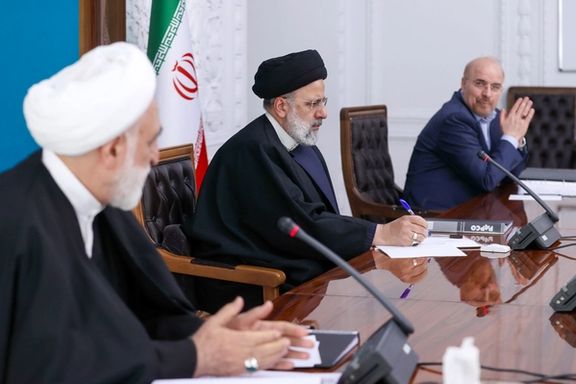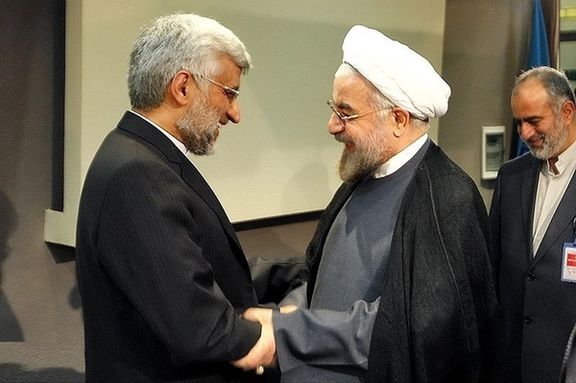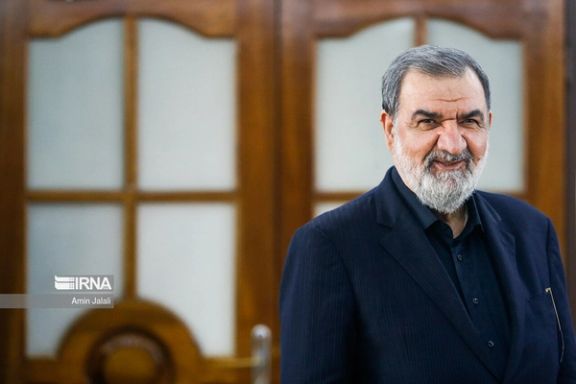As Iran Politicians Grapple With Crises, People Want Change

In what appears to be a coincidence, politicians representing opposite ends of the Islamic Republic's political spectrum have recently brought up the issue of shadow governments.

In what appears to be a coincidence, politicians representing opposite ends of the Islamic Republic's political spectrum have recently brought up the issue of shadow governments.
Iran stands out as one of the few countries, if not the only one, where shadow governments are established by allies of the ruling government rather than by its political adversaries.
The formation of a shadow government, initiated by populist ultraconservative politician Saeed Jalili in 2013, seemed logical during the tenure of the relatively moderate government led by Hassan Rouhani. However, Jalili persisted with these shadow government meetings even after like-minded ultraconservative Ebrahim Raisi assumed power in 2021.
Amir Hossein Sabeti, a state television presenter, who won a seat in the Iranian parliament (Majles) recently, wrote in a series of tweets that he attended a meeting of the "economic diplomacy work group" at the shadow government's office in Tehran.

Sabeti was Jalili’s chief of staff before leaving for the state television to become a talk show host, where Jalili's brother Vahid is the deputy director. The hardliner Paydari group, with the Jalili brothers as its influential members, control the state TV, where they propagate their ideology.
Sabeti wrote that senior officials from the Ministries of Economy and Agriculture as well as the governor of Central Bank, Tehran Governor General's office and even the Imam's Executive Headquarters, one of the richest entities operating under the aegis of Supreme Leader Ali Khamenei were present at the meeting.
The meeting, Sabeti said, discussed the problem of bringing in hard foreign currency cash into Iran from abroad. He added that the meeting called on the government to hold similar meetings to solve Iran’s shortage of US dollars. Meanwhile, he criticized the parliament for not cooperating with the government.
From Sabeti's tweet it was clear that Jalili is running a parallel government that tries to make up for the inefficiency of the Raisi Administration.
Incidentally, on the same date, conservative website Tabnak, which is close to Mohsen Rezaei, the man who coordinates meetings between the heads of the executive, legislative and judiciary bodies, quoted Reformist politician Mehdi Ayati as suggesting that Iran's Reformists who have been sidelined and ignored in the latest three elections in the country, should form their own shadow government.

Ayati added that if the Reformists fail in that endeavor, they will be forgotten soon, suggesting that the reformists should become active critics of the government. He also argued that political figures such as former President Mohammad Khatami and his aide Behzad Nabavi should retire and allow younger Reformists to restore their lost social credibility.
Parviz Amini, a prominent conservative sociologist during a recent televised debate said that the Reformist and Conservative definition of politics in Iran has lost its meaning. “Even the idea of boycotting the elections by Reformists never materialized because they are no longer active players." He added that the government turned the elections from a national event into smaller local events where family and tribal bonds were the driving force rather than political forces and ideology."
Amini argued that "there are no political forces in Iran with defined doctrines. Instead, the entire Iranian society is focused on the demand for change. Since the 2010s absolute poverty has tripled in Iran, public welfare has declined by more than 35 percent, and the national currency has been devalued by tens of times and all those problems brough about three major rounds of protests since 2018. In such a situation, elections and political parties are no longer the people's focus. They are only focused on change."